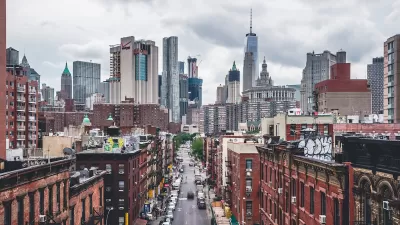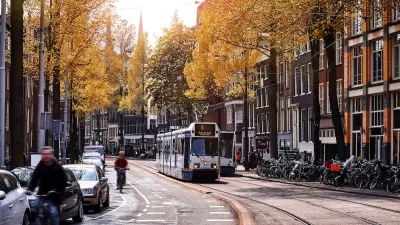In the first entry in an eight-part series, Aparna Piramal Raje explores the challenges facing an urbanizing India that lacks sufficient planning to ease the country's transition from a nation of villages.
"Indian towns and cities are characterized by a particularly dangerous combination of low-rise construction, high-density population in their central areas, and almost non-existent mass rapid public transport," observes Raje. "Congestion, pollution, vast proportions of uninhabitable accommodation and impoverished living standards characterize most fast-growing Indian cities."
"'Growth of urban agglomerations, especially outside urban administrative boundaries, is incoherent and un-coordinated, driven by real estate developers and market forces, rather than urban planning,' says H.S. Sudhira, an urban researcher and author of a working paper on land cover of Indian cities, to be published by IIHS, an institution that focuses on urban transformation."
And while many recognize the importance of India's cities as engines for economic growth, urbanization is "not part of the larger policy debate in the country," says Isher Judge Ahluwalia, chairperson of the Indian Council for International Economic Relations. "This myopia of policymakers is attributed to the [perhaps inaccurate] prevailing mindset that the majority of India still resides in the villages, and that urban centres account for a minority of the Indian population," explains Raje.
There's optimism though that the inattention to urban issues may be waning. For instance, the recent decision by the Delhi high court to dismiss a petition that challenged the city's bus rapid transit system (BRT) is seen as a promising step.
"Ahluwalia equates the discourse on urbanization today to the debate surrounding the pros and cons of liberalization in the 1980s, predicting that it will gather momentum in the near future. 'If we could move from a heavy industry-dominated, public sector-dominated, closed economy in the ’80s to liberalization in the ’90s, I have no doubt that the transition (of the urbanization debate) will be faster.'”
FULL STORY: India’s urban challenge

Alabama: Trump Terminates Settlements for Black Communities Harmed By Raw Sewage
Trump deemed the landmark civil rights agreement “illegal DEI and environmental justice policy.”

Planetizen Federal Action Tracker
A weekly monitor of how Trump’s orders and actions are impacting planners and planning in America.

The 120 Year Old Tiny Home Villages That Sheltered San Francisco’s Earthquake Refugees
More than a century ago, San Francisco mobilized to house thousands of residents displaced by the 1906 earthquake. Could their strategy offer a model for the present?

Ken Jennings Launches Transit Web Series
The Jeopardy champ wants you to ride public transit.

BLM To Rescind Public Lands Rule
The change will downgrade conservation, once again putting federal land at risk for mining and other extractive uses.

Indy Neighborhood Group Builds Temporary Multi-Use Path
Community members, aided in part by funding from the city, repurposed a vehicle lane to create a protected bike and pedestrian path for the summer season.
Urban Design for Planners 1: Software Tools
This six-course series explores essential urban design concepts using open source software and equips planners with the tools they need to participate fully in the urban design process.
Planning for Universal Design
Learn the tools for implementing Universal Design in planning regulations.
Clanton & Associates, Inc.
Jessamine County Fiscal Court
Institute for Housing and Urban Development Studies (IHS)
City of Grandview
Harvard GSD Executive Education
Toledo-Lucas County Plan Commissions
Salt Lake City
NYU Wagner Graduate School of Public Service





























